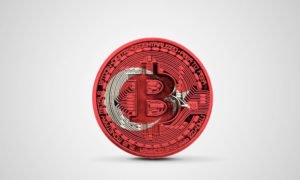Why is The Use of Cryptocurrency so Popular in Turkey?
Market standstill during the epidemic has boosted demand for cryptocurrencies in Turkey. Let’s see what else is driving the demand.

Many people were concerned about currency depreciation as governments and central banks throughout the world sought to reverse the terrible economic harm caused by the Covid-19 outbreak by opening the stimulus faucets to flow forth trillions. Now people used to buy Bitcoin in Istanbul after the pandemic.
The usage of gold as a store of wealth has been one of the go-to safe havens in the setting of poor faith in fiat money. But what happened instead was the massive adoption of cryptocurrencies like Bitcoin, which began to function as a digital reserve asset, earning it the moniker “digital gold” as its value skyrocketed (one Bitcoin is presently worth $60,506).
And it was the same in Turkey, where investors believe a weak currency and inflationary pressures, as well as the expectation of fast returns, drove demand. “I believe Bitcoin is the new gold,” public servant Mahmut Akdemir remarked, adding that the market standstill during the epidemic has boosted demand for cryptocurrencies in Turkey.
Different People Have Different Views to Buy Bitcoin in Turkey
Akdemir, 38, told TRT World that he and his wife entered the crypto market a month ago after hearing that many people in their area were profiting from it after they buy Bitcoin in Istanbul. “I will surely invest from now on,” he stated. To demonstrate his newfound passion, Akdemir stated that if he had $500,000, he would set aside at least $100,000 for cryptocurrency.
Mehmet Emin Zengin, a 35-year-old banker, told TRT World that the epidemic has accelerated adoption owing to rising unemployment and remote working circumstances, both of which have affected people’s exposure to the cryptocurrency market.
Zengin, who began a little investment last year, believes that the ease of access and lack of affiliation with any organization contributed to the rise in public interest in cryptocurrencies. But he doubts it will make a dent in gold any time soon.
“I don’t believe Bitcoin will ever be able to replace gold,” he stated. “Gold is a commodity that has never depreciated in value since the dawn of time. Individuals and companies in Turkey have historically utilized gold and other currencies such as the US dollar to protect themselves against excessive inflation.
The lira witnessed a near 16 percent increase in inflation in February, much beyond the intended objective of 5%. Last month’s dismissal of Turkey’s Central Bank governor, Naci Agbal, apparently over a monetary policy dispute, prompted the addition of jet fuel to crypto adoption rates. The lira plunged more than 14% versus the US dollar after Agbal’s departure, though it has subsequently recovered marginally.
Trading of Bitcoin in Turkey
Between March 20 and 24, $2.8 billion in cryptocurrency was exchanged, compared to $12 million the year before. Trading volumes reached $26 billion between the beginning of February and March 24, with a peak on the weekend of Agbal’s departure.
BtcTurk and Paribu, two Turkish crypto exchanges, were trading in excess of $1 billion per day at the start of 2021. Any discussion of cryptocurrencies in Turkey would be incomplete without addressing the industry’s development into football.
In preparation for next year’s UEFA European Championship, Turkey’s largest crypto exchange buy BTC in Istanbul, which has over 1 million members trading on the site, has become a significant sponsor of both the Turkish men’s and women’s national teams. Fan tokens have been established by Galatasaray and Trabzonspor, while Istanbul Basaksehir has declared plans to debut on Socios, a blockchain-based fan token platform. According to rumors, other important teams including Besiktas and Fenerbahce are planning to follow suit in the coming season.

Uncertain Regulatory Landscape
The recent surge is simply a small portion of a much wider picture of Turkish interest in cryptocurrency, which has been slowly increasing for years. Turkey is among the top five nations in the sector for adoption rates, according to crypto expert Onur Gozupek of BtcTurk.
According to a 2019 poll by data firm Statista, one in every five Turks – or 20% of the country’s 80 million citizens – has some type of “crypto exposure.” In research issued in 2020 by Turkey’s Information Technologies and Communications Authority (ICTA), the country’s crypto users were expected to number approximately 2.4 million, or around 3% of the entire population.
He claims that the Turkish crypto community, particularly the younger age, is quite active in trading. “Turks are traders, not investors.” And, given the current economic climate, individuals view cryptocurrencies as a chance to make money quickly and maybe become wealthy.”
Part of the reason for cryptocurrency’s quick rise in popularity to buy Bitcoin in Istanbul with cash is that there is now no regulatory structure in place in Turkey – but this does not make it legal or unlawful. According to Gozupek, the lack of regulation prohibits adoption from reaching the consumer market, leaving those interested in the field with little choice except to trade. Part of the appeal for Zengin is the ability to trade with cheap commissions and control his own investments without being supervised by anyone.

